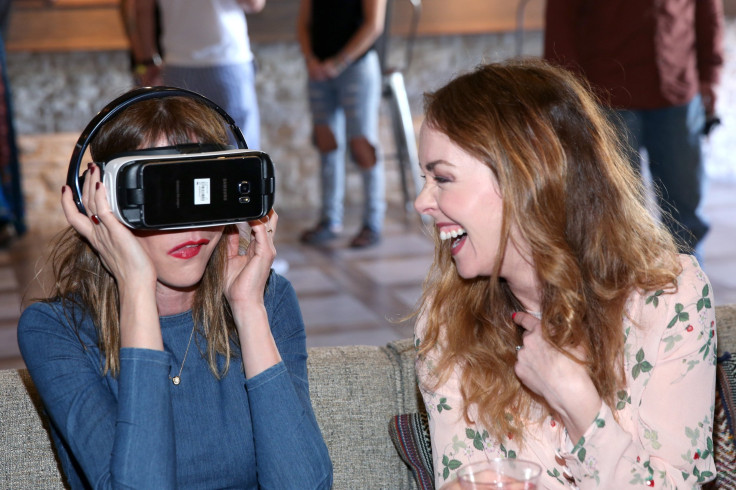Women In Gaming: How Virtual Reality Could Spur Social Change In The Video Game Industry

With virtual reality, the video game industry is undergoing its biggest change since consoles made their way into living rooms. But VR isn’t just ushering in a technological change. It may also stir social change, bringing new opportunities to female developers, whose scarce representation in the industry nowhere near reflects the true number of female gamers.
“What we’re seeing in the VR space, the spark of excitement around this particular type of technology that has suddenly become cost-effective and also added creative potential,” Tracy Fullerton, director of USC Games, told International Business Times at the Games for Change festival in New York last week. “I think there’s a tremendous energy and interest. That’s always good because there will be opportunities there, and a broad range of them.”
As of 2014, female developers made up just 22 percent of the industry, with 2 percent identifying as transgender or androgynous, according to an International Game Developers Association workplace study. While dismally low, that number was double from what was seen in 2009. An recent study states 52 percent of gamers are women. In the growing eSports industry, 30 percent of enthusiasts are female.
But with virtual reality now available to consumers — in the form of Oculus Rift, the HTC Vive, Gear VR and the upcoming PlayStation VR — there are even more opportunities for female developers. The opportunities for VR extend beyond games. For now, VR will be closely associated with video games, but the technology provides new ways to tell stories, present ideas or inform how one works.
“There are more-reflective experiences, taking you to Mount Everest, or more-adventurous experiences that are different from what we see traditional games exploring. That’s going to attract a lot of new minds. A lot of people are going to be jumping in, and that’s going to be across the board, not just women,” Fullerton said.
Looking at the Women in Virtual Reality’s expert directory highlights the different ways VR is being used in everything from public works to healthcare to interactive storytelling. Elizabeth Baron heads Ford’s VR lab, which is another example of how different industries are using VR for innovation.
Indie Spirit
Another, more subtle change has swept through the game industry. Indie development has flourished with the rise of digital distribution. Game sales are no longer limited to large retailers. The presence of Steam and other online marketplaces means a developer can create a smaller game, sell it for under $20 and make a living.
It’s a change noticed by Tobi Saulnier, founder and CEO of 1st Playable Productions. Saulnier is an industry veteran who previously worked at Vicarious Visions as a vice president of product design. During that time, she was one of just a few women working within the company, but that changed with her new company, which she founded in 2006. “When I started 1st Playable, however, we started out with a lot of women. So, for me, making that transition was kind of fun because it was the first time in my life I was working with a lot of women at the same time,” Saulnier said.
Games for Change is an unusual conference because of the high number of women speaking and attending — a contrast to events like E3, according to Saulnier.
But while she sees positive changes in the industry, she’s also well-aware of the continuing challenges facing women. “My daughter is a college student and plays more ‘core’ games and gets focused on as a woman playing any of those games as soon as other players figure out she’s a woman,” Saulnier said. “So it’s no different than ‘Gamergate’ or other instances of harassment happening in the industry and around the industry. However, I do think the trend is positive as people turn to other applications of games beyond entertainment.”
Fullerton also sees positive change in her classes and at the University of Southern California’s game design program, with around a 33 percent enrollment rate. Susan Gold, founder of the Global Game Jam and a 15-year industry veteran, has also seen encouraging growth. At the Global Game Jam 2016 in Cairo, around a third of the 1,000 attendees were women.
“When you have confidence, when you have the ability to project ideas and share and collaborate, it doesn’t matter what your gender is,” Gold said.
© Copyright IBTimes 2025. All rights reserved.





















